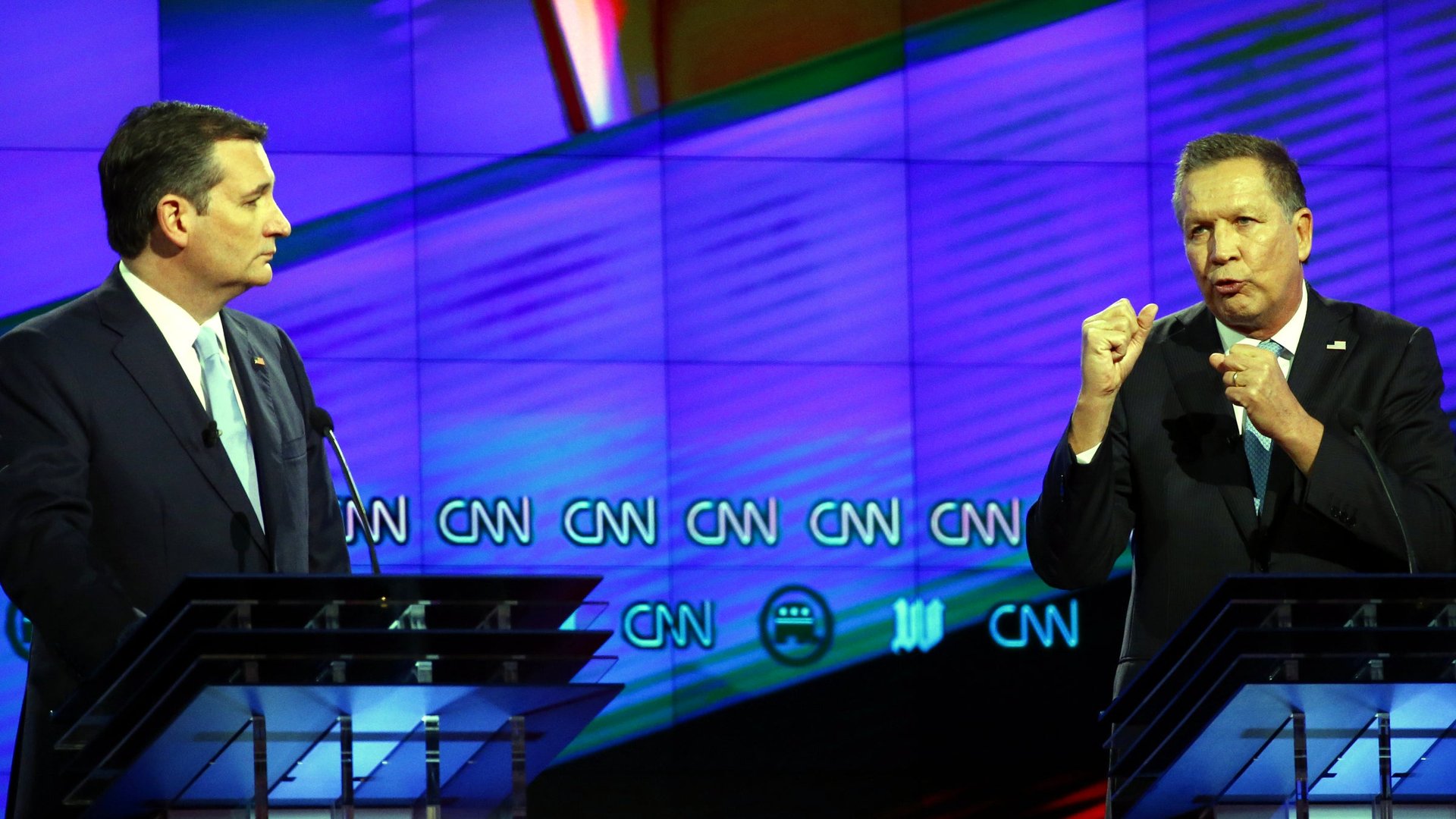Trump’s rivals finally team up—but is it too late?
Donald Trump has finally brought together evangelical southerners and northeastern fiscal conservatives—just not behind him.


Donald Trump has finally brought together evangelical southerners and northeastern fiscal conservatives—just not behind him.
The campaigns of Texas Senator Ted Cruz and Ohio Governor John Kasich have announced that they will effectively cooperate in their ongoing effort to deny Trump the Republican nomination in a contested convention this summer.
Trump remains the frontrunner in the race, but the crowded field means that it’s still possible to prevent him from collecting a majority of delegate before the convention. If he fails to win the first nominating vote there, the delegates will be free to back who they choose, which his opponents hope will be someone—almost anyone—else.
To maximize their chances of blocking Trump, Kasich’s team said it would halt its flow of campaign resources of Indiana, the midwestern state with a conservative bent where Cruz’s chances of upsetting Trump seem best. Cruz and company will pull out of Oregon and New Mexico, two more moderate states where Kasich’s brand of compassionate conservatism is expected to play well.
The precipitating factor was last week’s primary election in New York, which Trump—reveling in his outer-borough popularity—dominated. The results turned Cruz’s long-shot hope of winning a majority of delegates to the convention himself into total impossibility. Now that his only chance to win is at the convention, he has changed his tune about Kasich, who he has long-derided as a spoiler who should be backing him.
But the candidates have let the margin become very, very close before finally heeding the call for #neverTrump unity.
By Quartz’s count, Trump needs 393 delegates to reach a majority. There are 729 left up for grabs, and unlike the Democrats, who allocate their elected delegates proportionally, Republican rules are written so states can give most or all of their delegates to the biggest winner. There are 355 delegates left in states using those rules—which is why Trump remains the expected winner of the nomination in many projections.
Indiana, the third-largest remaining state with 57 winner-take-most delegates at stake, is probably the most important prize to deny Trump. Cruz trails there but with a week of unimpeded campaigning, he hopes to change the outcome. Oregon and New Mexico are smaller victories, with 52 proportionally-awarded delegates between them.
And anti-Trump forces are hopeful that 54 of Pennsylvania’s delegates will join them because they aren’t bound by election results due to an unusual loophole. Still, most surveyed say they will back whoever wins—and Trump leads in the polls there.
Indeed, Trump’s leads in California, New Jersey and Maryland could translate into a delegate haul amounting to half or more of what he needs for a majority.
The real question here is, what took these guys so long? Had this happened last month, things might be different—for example, if Florida Senator Marco Rubio had ended his dying candidacy before the March 15 round of voting, it would likely have led to Cruz victories in Illinois and Missouri that would have flipped 91 delegates away from Trump.
But that didn’t happen, perhaps unsurprisingly—collective action has never come easily to the Republican party. And now, it may be too late.